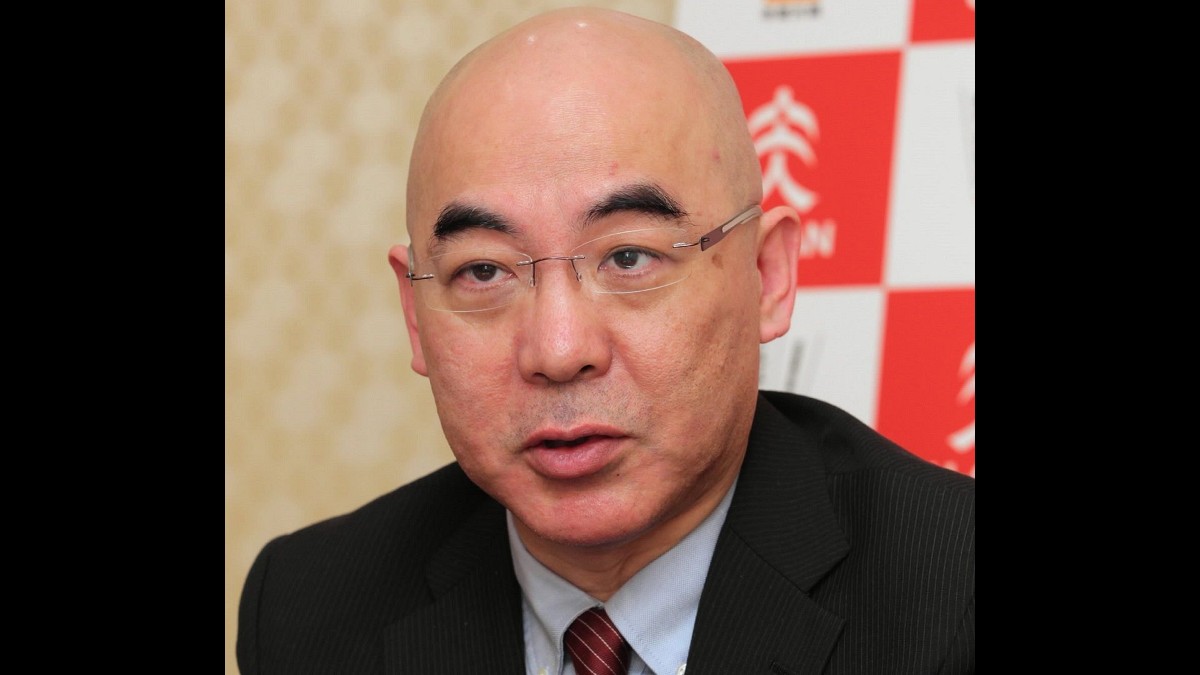The leader of Japan’s Conservative Party has sparked an uproar by advocating for a ban on women marrying after the age of 25 and having their uteruses removed at the age of 30.
This proposal was part of an overall discussion on the country’s ageing population and the problems it faces as a result of the falling birth rate .
Naoki Hyakuta, the leader of the Conservative Party, apologised after his comments sparked an immediate and sharp criticism.
Here’s all we know about the controversy.
The controversial remarks
In a November 8 YouTube video, noted writer and Conservative Party leader Naoki Hyakuta made the startling remark while talking about ways to boost the nation’s birthrate.
The minister proposed prohibiting women from getting married after the age of 25 and having forced hysterectomies ( uterus removal procedures ) at the age of 30.
He argued that by doing this, the dropping birthrate would be reversed and they would be encouraged to have children.
The politician also suggested barring women from attending college after the age of 18, allegedly in order to concentrate on having more children.
This proposal comes after previous divisive policies to promote marriage and reproduction, such as incentives for women to marry men from rural regions , which were also criticised for being too straightforward and tone-deaf.
Hyakuta became recognised on the far right of Japanese politics in part because of his best-selling book The Eternal Zero, which was adapted into a movie that glorified kamikaze pilots in the closing days of World War II.
Impact Shorts
More ShortsHe was appointed to the board of national broadcaster NHK in 2013 by then-Prime Minister Shinzo Abe, a move that was criticised at the time for allegedly attempting to control the organisation’s editorial independence and policies.
Backlash
The regressive remarks raised concerns over women’s rights and reproductive freedom, drawing harsh criticism from politicians and others.
Expressing outrage on the matter, actor Chizuru Higashi, according to South China Morning Post, said, “The idea of taking away reproductive ability if you have not had a child by the age of 30 is terrifying, even as a joke. Besides, do you think that the declining birth rate is the fault of women? Women cannot get pregnant on their own and they have no confidence about giving birth and raising children because their employment and income are not stable.”
Sumie Kawakami, a lecturer at Yamanashi Gakuin University and author of a book on gender issues, told This Week in Asia, “I cannot believe that a Japanese politician has said such a thing. I can only see these comments as a call to violence against women.”
Kawakami was concerned that, similar to other parts of the world, particularly the United States when Donald Trump first declared his intention to run for president in 2015, the standard of political dialogue in Japan was also degrading. She claimed that because fewer Japanese women were willing to speak out against misogyny than those in the US, the danger was arguably far greater there.
“A weaker response will just serve as an incentive to the chauvinists,” she added.
Hyakuta’s party also denounced his proposal. In an interview with Fuji Television, Joint Chairperson Takashi Kawamura said he had asked Hyakuta to take back his remarks.
“I apologise on his behalf to the supporters of the Conservative Party and to the Japanese people,” he added.
The apology
During a speech in Nagoya on Sunday, Hyakuta later apologised, saying his remarks were purely hypothetical and did not represent his own opinions.
“I will retract them and apologise as there were people who found them unpleasant,” he said.
He explained that these concepts were not intended to be taken literally, but rather were presented as a “science-fiction storyline” to start conversation. He added on X that he does not support such extreme actions against women and that his remarks were “extremely harsh.”
Kaori Arimoto, a senior member of his party who was with him on the programme, who complained that his remarks were unacceptable even as a “science fiction” scenario.
Responding to this, Hyakuta said, according to Kyodo News, “I was explaining about the time limitation faced by women in giving birth) in a plain way.”
Social values, according to Arimoto, were evolving quickly, and many individuals no longer associated happiness with parenting.
Hyakuta replied that social structure changes would be necessary to reverse this tendency and theoretically proposed that women would decide to have children earlier if they thought that there was a “time limitation” on childbirth.
Hyakuta’s attempt to dismiss his comments as “science fiction” did not sit well with author Issui Ogawa, who contended that this language simply trivialises the harm that his words do.
“I’m a science fiction writer and I’m not amused that the grotesque idea of removing a girl’s uterus was described as science fiction, while I’m also unhappy at the idea of forcing her to marry and give birth – with penalties attached,” he said.
Moreover, Kawakami told This Week in Asia, “He (Hyakuta) has said something and now there has been a strong reaction he has withdrawn it and apologised, but if there had not been a response then he would not have felt the need to claim he was only speaking hypothetically and to apologise."
Fertility crisis in Japan
Japan is facing a serious fertility crisis as the country struggles with ageing population and a declining workforce.
According to preliminary official data released in September, the country’s birth rate dropped to its lowest level since 1969 in the first half of 2024.
According to the health ministry’s preliminary data, the nation recorded 350,074 births between January and June, which is 5.7 per cent lower than during the same time previous year.
With inputs from agencies


)

)
)
)
)
)
)
)
)



